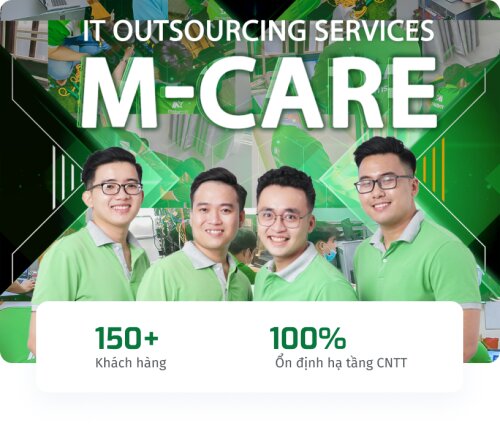Best Biotechnology Lawyers in Vietnam
Share your needs with us, get contacted by law firms.
Free. Takes 2 min.
Or refine your search by selecting a city:
List of the best lawyers in Vietnam
About Biotechnology Law in Vietnam
Biotechnology in Vietnam is a rapidly developing sector, with significant governmental support geared towards innovation in agricultural sciences, healthcare, and pharmaceuticals. The country's policy framework is aligned with its strategic priorities to enhance biotechnology applications that contribute to socio-economic development, environmental protection, and sustainability. With Vietnam's accession to the World Trade Organization and its participation in various international agreements, there is a concerted effort to boost regulatory standards and intellectual property protection, thus attracting foreign investments and collaborations in the biotechnology field.
Why You May Need a Lawyer
There are several scenarios where legal expertise in biotechnology might be essential in Vietnam:
- Intellectual Property Protection: Safeguarding patents, trademarks, and copyrights for biotechnological innovations.
- Research and Development Agreements: Advising on contracts and collaborations with research institutions or industrial partners.
- Regulatory Compliance: Ensuring adherence to Vietnamese and international regulatory standards, including biosafety and bioethics considerations.
- Licensing and Commercialization: Facilitating the transfer of technology from the lab to market, ensuring fair agreements and royalties.
- Dispute Resolution: Handling litigation or arbitration related to contractual breaches or infringement of rights.
Local Laws Overview
Vietnam has put in place several legal frameworks pertinent to biotechnology, which include:
- Intellectual Property Law: Provides protection and enforcement measures for patents, specifically focusing on biotechnological inventions.
- Law on Technology Transfer: Regulates the transfer of technology within and into Vietnam, emphasizing support for high-tech sectors including biotechnology.
- Biosafety Law: Governs the safe management of genetically modified organisms and ensures bioethics in associated research and development activities.
- Standards and Technical Regulations: Establishes benchmarks for product quality and safety in biotechnology, impacting both domestic and imported products.
Frequently Asked Questions
What constitutes a biotechnology invention in Vietnam for patent purposes?
In Vietnam, a biotechnology invention can be a product (such as a new material or organism) or a process (such as a method for producing a specific biochemical or biological material). To be patentable, the invention must be novel, involve an inventive step, and be industrially applicable.
What are the common intellectual property challenges in biotechnology?
Common IP challenges in biotechnology include navigating complex patent landscapes, managing research collaborations, and dealing with potential patent infringements. It is essential to consult a legal expert well-versed in both local and international IP laws.
What are the processes for technology transfer in Vietnam?
The process involves several steps, including negotiation of terms, contract drafting, government registration, and compliance with local laws regulating foreign technologies’ entry into Vietnam.
Are there specific environmental regulations affecting biotechnology in Vietnam?
Yes, companies must comply with the Law on Environmental Protection, which includes provisions for sustainable practices and management of biotechnology processes, especially those involving genetically modified organisms.
How does Vietnam handle biotechnology product approvals?
Vietnam requires biotech products, especially those related to food and pharmaceuticals, to undergo rigorous safety assessments conducted by relevant governmental agencies before being marketed or used.
What are the penalties for non-compliance with biotechnology regulations?
Penalties can include fines, suspension of business operations, revocation of permits, or legal action against the entity and responsible individuals.
Is biotechnology research encouraged in Vietnam?
Yes, the Vietnamese government actively promotes biotechnology research through various initiatives, funding programs, and partnerships with academic institutions and foreign entities.
How can foreign companies invest in Vietnam's biotechnology sector?
Foreign companies can invest through joint ventures, wholly foreign-owned enterprises, or by collaborating with local partners, provided they comply with Vietnam’s regulations on foreign investment and industry-specific laws.
How significant is the impact of international agreements on Vietnam's biotechnology regulations?
International agreements, such as WTO treaties and free trade agreements, significantly influence Vietnam’s biotechnology regulations, particularly in aligning local standards with global practices and enhancing IP protection.
What should a business consider when hiring a biotechnology lawyer in Vietnam?
Businesses should seek lawyers with expertise in local and international biotechnology law, experience with regulatory compliance, a solid understanding of IP rights, and the ability to handle cross-border legal issues.
Additional Resources
For more information and assistance, these resources can be invaluable:
- Vietnam Intellectual Property Office: For IP registration and protection guidance.
- Vietnam Ministry of Science and Technology: Offers insights into policies and strategies in the fields of science, technology, and innovation.
- Vietnam Biotechnology Association: A professional organization supporting research and collaboration in biotechnology.
- Institute for Biotechnology - Vietnam Academy of Science and Technology: Facilitates research, development, and dissemination of biotech innovations.
Next Steps
If you require legal assistance in the field of biotechnology in Vietnam, it is advisable to:
- Identify Your Needs: Clearly define the specific legal services you require, such as patent filing, compliance advice, or contract negotiation.
- Research and Select a Lawyer: Look for lawyers or law firms with proven expertise in biotechnology and a strong track record in the Vietnamese market.
- Schedule Consultations: Arrange meetings to discuss your needs, offering potential lawyers a comprehensive understanding of your case.
- Evaluate Proposals: Compare the proposals received, considering cost, experience, and familiarity with the relevant biotechnology laws.
- Engage with Confidence: Choose a lawyer with whom you feel comfortable and assured, establishing clear communication channels from the outset.
Lawzana helps you find the best lawyers and law firms in Vietnam through a curated and pre-screened list of qualified legal professionals. Our platform offers rankings and detailed profiles of attorneys and law firms, allowing you to compare based on practice areas, including Biotechnology, experience, and client feedback.
Each profile includes a description of the firm's areas of practice, client reviews, team members and partners, year of establishment, spoken languages, office locations, contact information, social media presence, and any published articles or resources. Most firms on our platform speak English and are experienced in both local and international legal matters.
Get a quote from top-rated law firms in Vietnam — quickly, securely, and without unnecessary hassle.
Disclaimer:
The information provided on this page is for general informational purposes only and does not constitute legal advice. While we strive to ensure the accuracy and relevance of the content, legal information may change over time, and interpretations of the law can vary. You should always consult with a qualified legal professional for advice specific to your situation.
We disclaim all liability for actions taken or not taken based on the content of this page. If you believe any information is incorrect or outdated, please contact us, and we will review and update it where appropriate.
Browse biotechnology law firms by city in Vietnam
Refine your search by selecting a city.














